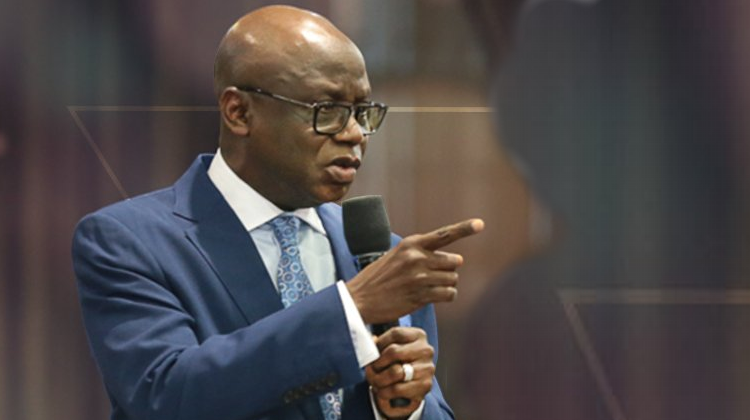
A presidential aspirant on the platform of the All Progressives Congress, Pastor Tunde Bakare, has promised to restructure the national security architecture to protect herdsmen, farmers, traders and the common people if elected as President in 2023.
Noting that the nation is beset by regional, national and foreign security threats, the aspirant said he would bring security apparatus closer to the people.
The cleric stated that under his administration, Nigeria would be a net exporter of refined petroleum products and the price of fuel would significantly reduce in two years.
Speaking in an interview with The Cable, Bakare attributed the security crisis in the country to the absence of sub-national policing systems, especially state and local police.
He argued that the structural and numerical inadequacies of the policing system have over-stretched the Nigerian Army and heightened the nation’s vulnerability in the face of external aggressors.
Bakare noted, “If I am elected President, Commander-in-Chief of the Armed Forces, I will rebuild our national security architecture on the foundation of a new philosophy that brings national security apparatus closer to the people.
“My national security philosophy will accord the security of the cattle owner in Gusau, the farmer in Makurdi and the trader in Onitsha the same importance as the security of the President.”
The cleric also said his plan for new national security architecture would include the coordination and non-politicisation of intelligence which would be managed by an independent non-political Office of the Director of National Intelligence.
Outlining his vision to end fuel importation, Bakare, who is the Serving Overseer, the Citadel Global Community, stated, “If I am elected President, we will deploy the right mix of policies towards achieving progress and prosperity with our petroleum resources.
“My first focus in this regard will be to make domestic refining work optimally. With the Dangote Refinery expected to produce 50 million litres of petrol and 15 million litres of diesel daily, Nigeria’s daily consumption of petroleum products will be met through domestic production.
“This will eliminate import dependency and position Nigeria to benefit from global surges in crude oil prices. It simply shows the need to reform the sector for competitive private sector participation.
“While these reforms are ongoing towards domestic refining and the optimisation of the full value chain of petroleum resources, I will adopt a transparent and phase removal of fuel subsidy alongside targeted safety nets such that Nigerians will not feel the effect of subsidy removal. In about two years, Nigeria will be a net exporter of refined petroleum products and the price of fuel will significantly reduce.”
On the economy, the presidential hopeful affirmed Nigeria’s diverse economic potential which is spread across her geo-economic zones, explaining that he would launch the Nigerian Geo-economic Development Plan on the first day of his administration.
“With this plan, we will achieve a sustained double-digit growth rate that will triple Nigeria’s GDP to $1.5trn and place the country among the top 16 economies in the world by 2030,” Bakare promised.
According to him, the low economic productivity and the neglect of the real sector, especially manufacturing, were responsible for the mounting public debt which the Debt Management Office put at close to N40trn as of 2021.
Copyright PUNCH.
All rights reserved. This material, and other digital content on this website, may not be reproduced, published, broadcast, rewritten or redistributed in whole or in part without prior express written permission from PUNCH.
Contact: [email protected]





